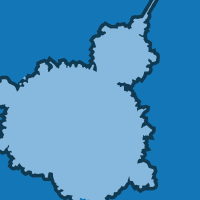Topic Menu
► Topic MenuTopic Editors


Mathematical Modeling of Complex Granular Systems
Topic Information
Dear Colleagues,
Granular materials are ubiquitous in natural and engineering systems, and the physics and mechanics of them are crucial for understanding some aspects of geophysical flows, natural hazards (such as landslides and pyroclastic flows), food processing, chemical engineering, and pharmaceutical engineering. Granular materials can behave like a solid, a liquid, or a gas in different circumstances, which increases the difficulty in capturing their macroscopic behavior. Above all, granular materials are athermal, dissipative, and non-equilibrium. The thermal, mechanical behavior of granular assemblies and the phase transition when the system is subjected to different loading conditions, such as vibration, shaking, or shearing, bring huge difficulties in describing the general behavior of such a system. Additionally, there is still a long way to go to link the behavior of relatively simple mono- or bi- dispersed granular systems with regular particle shapes to the behavior of real natural or engineering system, such as different geomaterials, concrete, powders, etc., and to provide a proper mathematical model for simulating the macroscopic behavior of complex granular systems. This multidisciplinary topic presents a platform where academic and industry researchers can present methodologies, techniques, applications, experiments, and theoretical derivations that aim to increase our understanding of complex granular systems and their emergent behaviors, such as granular rheology, self-organizing criticality, granular segregation and percolation theory, and help link the behavior of granular system to more complex geomaterials. The focus of this Topic is both on modelling and simulation techniques but also on their practical application on various scenarios, and as such papers are welcome on a variety of topics including modelling, simulation, analysis, experimentation, and specific properties as defined above. Papers submitted on new and emerging topics within the general discipline are also encouraged.
Best regards,
Prof. Dr. Herbert Huppert
Dr. Teng Man
Dr. Xudong Zhang
Dr. Yiding Bao
Topic Editors
Keywords
- granular materials
- geomechanics
- mathematical modeling
- rheology
- granular segregation
Participating Journals
| Journal Name | Impact Factor | CiteScore | Launched Year | First Decision (median) | APC |
|---|---|---|---|---|---|

Entropy
|
2.0 | 5.2 | 1999 | 21.8 Days | CHF 2600 |

Materials
|
3.2 | 6.4 | 2008 | 15.2 Days | CHF 2600 |

Symmetry
|
2.2 | 5.3 | 2009 | 17.1 Days | CHF 2400 |

Mathematics
|
2.2 | 4.6 | 2013 | 18.4 Days | CHF 2600 |

Fractal and Fractional
|
3.3 | 6.0 | 2017 | 19.9 Days | CHF 2700 |

Preprints.org is a multidisciplinary platform offering a preprint service designed to facilitate the early sharing of your research. It supports and empowers your research journey from the very beginning.
MDPI Topics is collaborating with Preprints.org and has established a direct connection between MDPI journals and the platform. Authors are encouraged to take advantage of this opportunity by posting their preprints at Preprints.org prior to publication:
- Share your research immediately: disseminate your ideas prior to publication and establish priority for your work.
- Safeguard your intellectual contribution: Protect your ideas with a time-stamped preprint that serves as proof of your research timeline.
- Boost visibility and impact: Increase the reach and influence of your research by making it accessible to a global audience.
- Gain early feedback: Receive valuable input and insights from peers before submitting to a journal.
- Ensure broad indexing: Web of Science (Preprint Citation Index), Google Scholar, Crossref, SHARE, PrePubMed, Scilit and Europe PMC.


